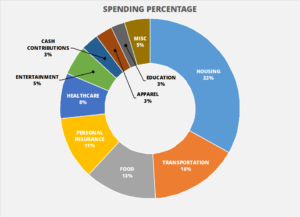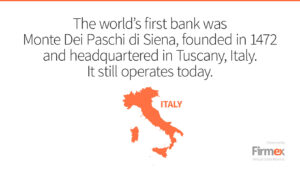Finance Essay Samples and Papers Page 17
187 essay samples on this topic
Essay Examples
Essay topics
Overview
Track Your Money to Save It
Money
Personal Finance
Saving Money
Everyone knows the importance of saving money: to protect against emergencies, to secure your future, etcetera, etcetera. However, saving money is often confused with penny-pinching. It is not necessary to deprive yourself of things that give you joy to build a healthy emergency fund; It might simply be a matter of allocating your money more…
Benefits of Using Bitcoin
Bitcoin
Money
Businesses can benefit greatly from using Bitcoin. Bitcoin is a digitized form of currency as a modern way to process transactions online. There are four components that make up this network, one of them being its software. The software is an open-source project which means that it can be modified and changed for different purposes.This…
The Ivy League Study
Business
Ivy League
Money
Sports
While these changes experienced have been proven to be successful at the collegiate level, the same cannot be said when it comes to the professional athletes in the NFL. Even though changes have taken place with NFL kickoff rules, stemming from the successful study from the Ivy League, the NFL is witnessing different effects. Concussions…
Save Your Money with Used Parts on Car Maintenance
Money
Personal Finance
Saving Money
If this summer you went on vacation with the car to vacationer places in Dallas, you probably had the precaution of going through the workshop before to check that it was in perfect condition with an Stepney and gas tank filled with fuel .Because your trip may got brakes at any time in the high…
Can We Say That Money Make One Happy
Dream Vacation
Happiness
Money
Happiness is not tradable or profitable, its an emotion for example, sadness, anger etc, it measures your entire life up until the present moment. It tends to last long or short for many people, happiness depends on ourselves according to Aristotle’s, but happiness means differently to everyone as what they are looking for. Our life…
Ethical Issues on Insurances in Healthcare
Health Insurance
Healthcare
Medicine
In Healthcare, obeying the law is ethical but the two are not the same. When dealing with insurance companies, agents can stay within the written law but still act unethically. (Sherman, 2017). Insurance is an essential product that most people need to survive and get the care they need to remain healthy. All individuals and…
The Main Goal of Lucky Clover Bank Is to Protect Customer Information
Banking
Business
Customer
Identity Theft
Lucky Clover is on a mission to change the traditional way of banking. Lucky Clover Corp. was established in the 1980s, expanded into retail banking in early 2000s to reduce its dependency on credit cards from approximately 90% to 50%. Lucky Clover Bank is a medium to large sized US bank with its total assets…
The German Health Care System
German
Health
Health Insurance
Decision-making powers are traditionally shared between national (federal) and state (Land) levels, with much power delegated to self-governing bodies in German health care system. It provides universal coverage for a wide range of benefits. Since 2009, health insurance has been mandatory for all citizens and permanent residents, through either statutory or private health insurance (2019)….
Mother’s Milk of Politics
Money
Politics
In 1895, Senator Mark Hanna of Ohio was quoted as saying, ”There are two things that are important in politics. The first is money and I can’t remember what the second one is.” Money has been called the mother’s milk of politics. Despite all kinds of rules, regulations and reforms, the American political system is…
Suggestions for Completing Applications Review
Budget
Proposal
Technology
Please go back and review the funding source you previously chose–Do they have an electronic submission process? If so, are the directions clear with what you need in order to have the appropriate IT applications and equipment (provide detail on what they are). Based on the course reading is there anything you need to prepare…
Check a list of useful topics on Finance selected by experts
Essay Topics About Finance
Finance Argumentative Essay Topics
An Overview of Enron / Arthur Anderson Financial Scandal
An Essay on Methods of Resolution of Disputes in International Trade Contracts
Good Course Work On Accounting Policies
The Role of a Country’s Infrastructure in Encouraging Inward Foreign Direct Investment
An Essay on China, the Human Rights and the World Trade Organization (WTO)
Free Essay About International Financial Reporting Standards
The Effect of Money on Jay Gatsby
The Minimum Wage Must Be Raised
Good Example Of MBA in Finance Admission Essay
Effective Detection of Credit Card Fraud
Minimum Wage in America
Good Example Of Essay On Israel Capital Market
Depiction of The United States 2000s Housing Bubble in The Film The Big Short
Why Equal Pay Helps Society More Than Minimum Wage Increase
Management Accounting Course Work Samples
The Credit Card Act and Its Importance
Finance Descriptive Essay Topics
Why the Minimum Wage Should’nt be Increased
Sample Critical Thinking On Employees’ Improvement
Impact of Credit Card on Consumer Behavior
The Cost of Raising the Minimum Wage
Sample Essay On Intellectual Property
The Role of Alexander Hamilton in American Economy History as Depicted in One Nation Under Debt by Robert E. Wright
The Negative Effects of Increasing Minimum Wage
Financial Ratios Research Paper
Differences in Risk Taking Behaviors Between Men and Women in Investing
Why Minimum Wage is Not the Option
Free Learning for Changing Organization Essay Sample
Report on My Internship in The Banking Industry
Raising The Minimum Wage is Bad
Sarbanes-Oxley Act Essay
Money Makes Life Easier But It Doesn’t Make You Happy: Persuasive Essay
From Minimum Wage to Living Wage
Finance Persuasive Essay Topics
Financial Manager of Starbucks Company Report Examples
Crisis in The Agriculture Sector in The Philippines
Effects of Minimum Wage Increase on Poverty Rates
Good Essay On Mortgage Securitization
Analysis of How The Rise of Fintech Herald Traditional Banking
European Rivalry in the Caribbean
Small Businesses Going Global Course Work Examples
The Timeline of Wall Street Crash of 1929
Company’s protection
Free Liability to Creditors and Types of Companies Case Study Example
A Report on The Wall Street Crash of 1929
Ford Motor Company Financial Ratio Analysis
Example Of Case Study On Ethical Responsibility
Outcomes of The Californian Gold Rush
A Minimum Wage Job is a Starting Point
Admission Essay On Money Management
Finance Informative Essay Topics
Analysis of The Effects of The Wall Street Crash of 1929
Essentials of Accounting Finance and Economics
Free Essay On Mortgage
Life and Legacy of Marie Curie
Identity Theft: How to Protect Your Personal Information
Good Admission Essay On Rotman MFin Program
International Trade in Microeconomics
Example Of Accounting Course Work
Different Types of Mercantilism in 1800`s Society
Free General Electrics Ecomagination Presentation Example
Adidas History
information
What is finance?
Finance (in English finance, from Latin financia – income, cash) – a system of economic relations in the process of which occurs the formation, distribution and use of centralized and decentralized funds of money in order to perform the tasks and functions of the state.
Finance as a historical category
As a historical category, finance emerged simultaneously with the emergence of the state at the division of society into classes.
In times of primitive communal system there were no classes, there was no state. Further, in conditions of slave-holding and feudalism finances played an insignificant role in formation of monetary incomes of the state. The main types of state revenues at that time were tribute, robbery of subjugated peoples, in-kind taxes, etc. At the same time there were no distinctions between the resources of the state and its head, monarchs disposed of the country’s funds as their own. Only with the allocation of the state treasury and its separation from the property of the monarch (16-17 centuries) emerged the concepts: public finances, state budget, state credit.
Public finance served as a powerful lever for the initial accumulation of capital in the 16th-18th centuries. Enormous wealth flowed from colonial countries to the metropolis, which could be used as capital at any time.
The public finances of the capitalist countries were characterized by a rapid increase in expenditure, primarily due to the increasing militarization of the economy. At the end of the 19th century, more than two-thirds of public expenditures were devoted to this purpose. The same picture of finances developed after World War II. A jump in public spending usually occurs in the years of wars.
In capitalist countries, at the expense of public finances, the nuclear industry was created, the public sector of the economy increased sharply, spending on scientific and technological progress (STP) increased, etc. New expenditures appeared for environmental protection, subsidies and loans to developing countries.
After World War II, the sphere of financial relations also sharply expanded. Local (regional) finances, extra-budgetary special governmental funds and finances of state-owned enterprises were developed.
The essence of finance
The essence of finance characterizes financial relations, which express the process of distribution and redistribution of the value of the social product on the basis of which monetary funds of social reproduction are formed. These include:
entrepreneurs owning capital invested in the sphere of production, sale of goods and services;
able-bodied people engaged in hired labor;
the state, which owns natural resources and regulates the economy on a national scale.
There are two spheres of financial and monetary relations:
Centralized – these are monetary relations associated with the formation and use of monetary funds of the state (state budget, state credit, extra-budgetary funds, etc.).
Decentralized – the finances of enterprises of all forms of ownership.
Centralized and decentralized funds of money are organically interrelated.
The subjects of financial relations, between which the financial flows are formed, are:
- Enterprises, entrepreneurs;
- The working population;
- The state.
- The scale and intensity of financial relations depend on the economic activity of economic entities and the population, the social policy of the state, etc. The value form of movement of goods generates a monetary turnover. This is the essence of finance.
Financial system
The totality of financial relations in which funds of money are formed and used.
Financial policy
The totality of measures for the use of financial relations for the performance of tasks and functions.
Finances of commercial organizations
Represents economic relations arising during the formation of production funds of production and sale of products, the formation of their own resources, attracting external sources of funding, their distribution and use.
Public finance
Monetary relations are associated with the formation, distribution and use of funds.
Topics and ideas for finance
- Determinants of Dividend Payout Ratio
- Ways to Overcome the Financial Crisis in the UK
- International Finance Transactions: a Critical Appraisal and Evaluation of the Practical and Legal Methods for Transferring Loans In a Syndicated Loan Participation Agreement
- The Financial Impact of Student Debt on Working and Retired Americans
- The Historical Impact of Hamiltonian Economics
- Impact of Privatization on Profitability and Capital Employment of State-Owned Enterprises in the United States
- The Role of Foreign Institutional Investor in Developing Domestic Firms
- Ways to overcome financial crisis
- Issues on global currencies
- Banking systems in your respective country
- E-commerce on Internet Commerce and Stock Market Crises Review
- Case Study on Costing
- What are Bonds?
- Discuss the difference between traditional finance and behavioral finance.
- Study on the impact of budgetary controls on the performance of an organization study.
- Critical analysis on the use of financial statements in assessing the performance of an organization.
- Ethical Aspects of the Financial Crisis
- Impact of Macroeconomics on The Global Stock Market
- Using Credit Lines in Managing Corporate Liquidity
- The Role of Innovative Management Performance on Corporate Financial Returns
- Importance of the Banking Sector on the Growth of a Nation
- Review and Importance of Margin Financing
- Using Macroeconomics to Predict Bankruptcy
- Capital Structure and Corporate Strategizing
- Investment analysis of a company of your choice.
- A detailed report on working capital management.
- Finance as a tool that regulates the economics.
- The role of financial markets in mobilization and distribution of financial resources.
- The finance management in the United States and factors that can make it perfect.
- Finance in join-stock companies.
- Constant growth in productivity is an effect of accounting software
- Finance management is transforming and technology is a big cause
Videos about Finance
- 1. Introduction, Financial Terms and Concepts
2. William Ackman: Everything You Need to Know About Finance and Investing in Under an Hour | Big Think
3. Financial Education | The 4 Rules Of Being Financially Literate
Interesting infographics about Finance
1. Spending percentage in US for 2019 year

2. Some financial facts

3. First bank


